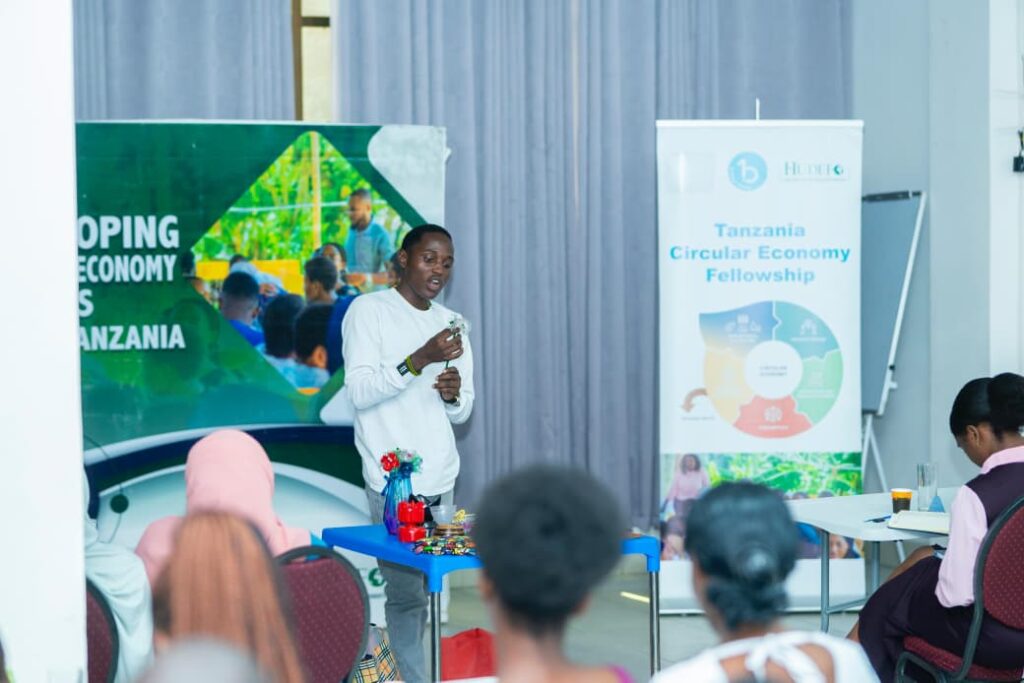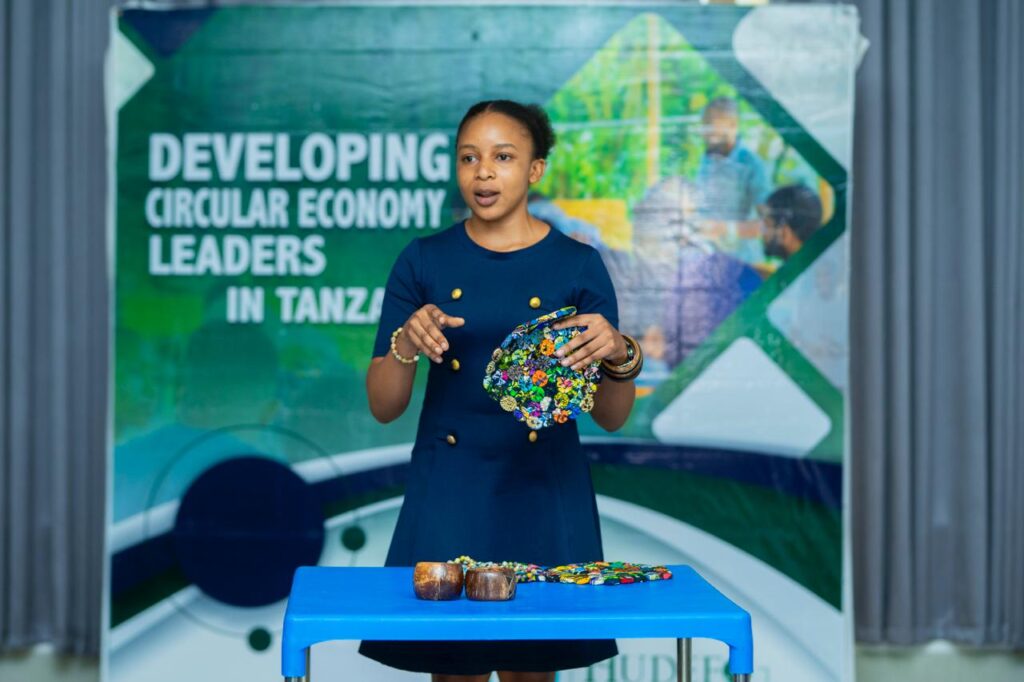Dar es Salaam. If you look at discarded plastic bottles, coconut shells, scraps of cloth or soda cans on the streets and see only garbage, you may be mistaken.
Even hard paper such as old calendars carries hidden economic potential capable of being transformed into bracelets, flowers, table mats and a range of home and office decorations.
While many people consider waste as mere dirt, a growing number of young Tanzanians are discovering that it can be a source of livelihood and entrepreneurship.
This has been demonstrated by 35 young people some from universities and others outside the formal education system who have completed a Circular Economy training programme under the Institute for Humanity and Environment (HUDEFO), which began in July this year.

Speaking on Friday, November 21, 2025, at the conclusion of the project, the youth expressed their excitement at gaining new skills that they say will shape their lives and empower their communities.
Pendo Moffat, one of the trainees, said he has learned to make bracelets from coconut shells and paper waste, as well as table mats often used by hotels and sought after by tourists.
“We can make all these items using simple materials like sandpaper, needles, glue and paint. As a young person, I am happy because these skills are truly valuable,” he said.
Pendo added that the opportunity is especially meaningful because many people, particularly mothers in informal settlements, lack steady sources of income. He said his group plans to pass the knowledge on to them.
Another participant, Prisca Mlangwa, said the circular economy approach has helped her understand how plastic waste, especially bottles can be repurposed into a variety of attractive products, including beauty accessories.
“Plastic bottles that people throw away can actually be transformed into products that can be sold locally and even internationally,” she said. “We want communities to understand that what they call waste can be given value with a very small budget.”

Prisca explained that anyone can collect waste materials, turn them into usable goods and showcase them at exhibitions such as Sabasaba or Nanenane to build a customer base.
For his part, Juma Hassan said he and fellow participants, organised in four groups, are committed to spreading the skills they acquired—particularly among young people and women.
“The circular economy means using waste to make new products instead of simply throwing it away as we are used to,” he said.
Theresia Mushi, the project lead, said the initiative succeeded due to strong commitment from participants and clearly defined goals.
“We started with the idea of giving new life to waste, such as used clothes and bottle caps, by turning them into useful products. We identified young people who were already learning online, brought them together and began the training,” she said.
She noted that the trainees produced approximately 150 different items, including wallets, bracelets, plastic flowers, table mats and key holders.
“Some of these products have already been showcased at the 30th Conference of the Parties to the United Nations Framework Convention on Climate Change (COP30) taking place in Brazil,” she added.
Theresia said the project will continue beyond the current group of 35 youth, as HUDEFO intends to extend the skills to mothers and other young people in communities to broaden economic opportunities.



